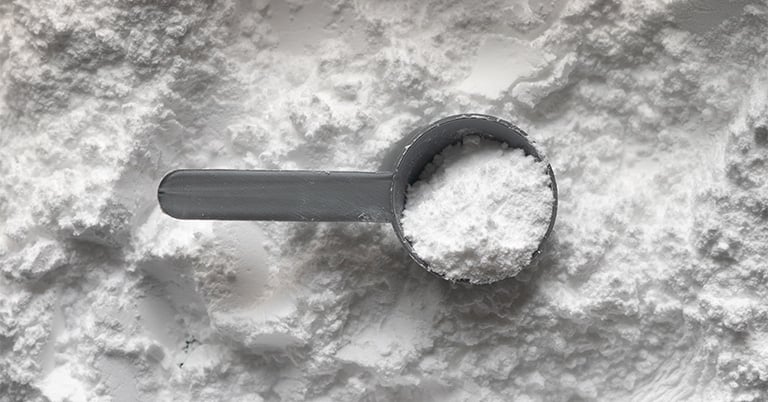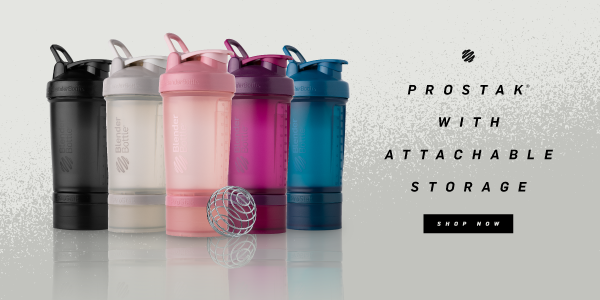This year, you've been hitting it hard at the gym. While you can tell you're getting fitter and leaner, you feel exhausted halfway through your workouts.
There has to be a way to sustain energy to make the most of your workout, right?
The answer is creatine, a popular ingredient in many pre-workout formulas. But what is creatine?
If you're looking for a way to enhance your workouts and boost your energy, creatine may be the solution for you. Here's everything you need to know about creatine and how it can help you both in and out of the gym.
What Is Creatine?
If you're unfamiliar with pre-workout and supplements for improving your performance at the gym, you might be asking “what is creatine?”
Your body naturally produces creatine in your muscle cells and stores it as phosphocreatine. Most of your creatine stores are in your muscles but there are small amounts of creatine in your brain, liver, and kidneys.
Your body creates creatine from amino acids, which gives creatine many of the same benefits as amino acids.
The purpose of creatine is to help give your muscles energy during high-intensity exercise and lifting. By taking it as a supplement, you can increase your phosphocreatine stores and enjoy more energy.
This creatine energy comes in the form of a molecule known as ATP or adenosine triphosphate. The more ATP you have, the greater your workout performance will be.
Creatine is one of the most popular supplements designed to boost your performance and enhance the effects of your workout. Researchers have found creatine will help increase your strength and muscle mass.
Creatine, however, isn't only for improving your exercising performance. Others use it as an alternative medicine to help treat rheumatoid arthritis, cholesterol, and Lou Gehrig's Disease (ALS).
Creatine HCL vs Creatine Monohydrate
Do all creatine products work the same?
The answer is no. There are several different types of creatine. The two most notable forms are creatine HCL and creatine monohydrate.
Creatine Monohydrate
The most popular and original form of creatine is monohydrate. It has undergone the most testing, proving its safety and effectiveness for building muscle.
A few benefits of creatine monohydrate are its affordability and purity. Monohydrate has a purity of around 99.8 percent. It can also help prevent water retention and bloating.
There is a greater loading phase to saturate your muscles with creatine monohydrate. Depending on your needs and body size, you'll need 15 to 20 grams of creatine to enjoy its effects. Those using creatine monohydrate for long periods can lower doses to 5 to 10 grams for maintenance.
Creatine HCL
There is also another popular creatine option available on the market. Creatine HCL or Hydrochloride is a form of creatine bonded with hydrochloric acid at a molecular level.
The major advantage of creatine HCL is that it can boost the absorption and solubility of creatine in your body. This allows your body and muscles to process and absorb it more efficiently.
This faster absorption also prevents water retention and bloating. The addition of hydrochloric acid in the creatine makes it more stable than its monohydrate counterpart.
As a more concentrated and easier-to-process version, you'll need less creatine HCL (about a quarter of a teaspoon) to enjoy its benefits. The drawback is that creatine HCL comes in smaller containers with a higher price tag.
Both forms of creatine offer the same benefits of improving muscle development and function.
How Does Creatine HCL Work?
When creatine enters your body, whether from natural production or as a supplement, it bonds with phosphate molecules in your body. This bond creates a form of creatine phosphate.
As briefly mentioned above, ATP is your body's energy currency. Your body produces ATP by processing carbs, fat, protein, and phosphates. This gives your body the ability to perform its numerous functions.
ATP loses phosphate during this process. When this happens, it turns into ADP or adenosine di-phosphate.
The ADP chemical is useless to your body as is. Fortunately, your body can convert ADP back to ATP for more energy with a little help from creatine.
Creatine phosphate donates a part of its phosphate group to ADP by breaking down the phosphates using water. This process converts ADP back into ATP.
This process gives your body sustained energy through your toughest workouts. In fact, creatine HCL is the preferred pre-workout supplement for high-intensity interval training (HIIT) and intense lifting. It allows you to train harder and longer, helping you make the most of every workout.
What Does Creatine Do?
The main purpose behind creatine is to create more ATP stores to improve your muscle energy.
But creatine also has a secondary purpose.
Creatine HCL works as a fuel source for your body. Your body uses its phosphate stores as its first fuel source during anaerobic activity such as weightlifting.
Adding creatine to your workout routine will grow your phosphate stores. Soon you'll notice you have more energy throughout your workout.
Another useful benefit of creatine is that it can help hydrate your muscles. Well-hydrated muscles will hold more water, appear larger, and improve protein synthesis.
The most popular use of creatine is to improve your energy stores for exercising and training. But there are other beneficial effects of creatine such as brain health, improved bone density, and metabolic health.
Benefits of Creatine
Besides supplying you with a seemingly endless supply of energy, creatine offers several more important benefits. It's certainly a supplement that can benefit people beyond those who enjoy lifting. These associated benefits make creatine a great supplement to improve your health and your quality of life—no matter who you are.
Brain Health
Your brain is similar to your muscles and relies on ATP and phosphocreatine for optimal performance. Like your muscles, your brain will process the creatine into more ATP to improve energy and brain function.
Studies are finding that creatine offers neurological protective properties. These properties can help reduce your risk of developing Alzheimer's disease and memory issues later in life.
Other uses of creatine can improve and treat symptoms of:
- Epilepsy
- Alzheimer's Disease
- Parkinson's Disease
- Brain and spinal injuries
- Huntington's Disease
-
Motor Neuron Disease
Those struggling with a brain injury can reduce dizziness and fatigue by consuming creatine.
Meat-based foods and products are a major source of creatine. Due to their diet, vegetarians typically have lower stores of creatine. This can increase their risk of developing neurological issues later in life.
Adding a creatine supplement can improve cognitive function as well as memory.
Protein Synthesis
Protein synthesis is a necessary process that aids in the development of lean muscle. Adding creatine to your diet will promote the growth of lean muscle mass.
Creatine's ability to hydrate muscles will cause them to retain more water. Your muscles will appear larger and you may gain anywhere from two to five pounds.
Boost Strength
The most notable benefit of creatine is an improvement in strength and power output. Your body has a limited supply of creatine phosphate stores based on the size of your muscles. Smaller muscles will have smaller stores.
You can increase these stores by working out to grow your muscle mass. Adding creatine to your workout to increase your ATP energy stores helps you make the most of every workout.
Regular exercise and creatine use will allow you to achieve larger, leaner muscles in less time. In turn, you'll enjoy greater creatine phosphate stores and prolonged energy as your workouts progress.
Achieve HIIT Workouts
An increase in muscle energy will improve your performance during short and intense activities such as HIIT workouts. Your body will be able to perform more single and maximal effort exercises. This includes heavy lifting and single-effort sprints.
Creatine can also improve these same activities when performed repetitively.
Reduce Depression
Depression can cause you to feel tired, unmotivated, and sad. These feelings can make going to the gym difficult and cause you to ignore other daily tasks.
Taking a creatine supplement can help negate the symptoms of depression. This will give your more energy and motivation to work out.
Exercising releases endorphins and serotonin. These natural hormones improve your mood and further alleviate symptoms of depression.
Heart Health
Creatine offers several properties to maintain a healthy cardiovascular system. This protects the vessels in your heart by preventing the buildup of fatty deposits such as cholesterol.
The energy-enhancing benefits of creatine can improve your body's cardiovascular endurance and anaerobic capacities.
Bone Health
Degenerative bone diseases such as osteoarthritis can wear down the bone and cartilage in your joints. Many bone diseases leave your bones fragile as you age. This puts you at greater risk of experiencing a serious fracture or bone issues later in life.
Resistance training supports healthy bone density and bone health. Creatine can enhance these bone benefits by allowing you to perform resistance training for longer periods of time.
Additional Creatine Benefits
Newer research also suggests the benefits of creatine can help moderate blood sugar levels and help treat fatty liver disease.
Is Creatine Bad For You?
Despite these great benefits, many people are hesitant about trying creatine. Unfortunately, there is a lot of misinformation regarding the safety of creatine.
Many people are asking, “Is creatine bad for you?”
The answer is, in short, no. Creatine, when consumed within the recommended doses, is completely safe.
Creatine is one of the most well-researched supplements on the market. Research and tests have found there are no related side effects or safety concerns with regular creatine use.
Following recommended dosing, creatine will not have any effects on your liver and kidneys. Those with existing liver or kidney issues should consult their doctor before taking creatine.
Some people have concerns about creatine causing muscle cramps and dehydration. There isn't research to back this claim. Creatine can actually help prevent cramps and improve hydration throughout your workouts.
The main warning creatine users should know is that the FDA (Food and Drug Administration) hasn't approved creatine. There aren't any regulated processing, safety, or purity standards.
To ensure your creatine is safe, you'll need to research the brand and check the ingredients. Any reputable brand will share this information on their website or product label. If you have questions, quality brands will be happy to help you.
Follow the recommended dosage guidelines to ensure your creatine intake is safe. Your recommended dose will depend on your body size and use.
When To Take Creatine
New and experienced creatine users alike often wonder if there's a best time to take creatine. The answer ultimately depends on the purpose of the creatine.
Are you using creatine to improve workouts? Mix your creatine in your BlenderBottle® shaker after your workout to rehydrate your muscles and build your phosphate stores. Your body will absorb nutrients more efficiently after a workout.
Consuming creatine before you work out isn't necessarily bad, but it won't give you any added energy. Your body needs time to process and build up its creatine phosphate stores.
For the first seven days of creatine supplementation, you'll want to take the recommended dose to saturate your muscles. After that, you can take creatine before or after a workout, as you wish.
If possible, avoid consuming creatine on an empty stomach. This can cause minor digestive discomfort.
How To Enjoy Your Creatine
The best way to enjoy your creatine is to start by selecting a quality creatine powder from a reputable brand. Add the recommended dose for your body size into your favorite BlenderBottle® shaker and top it with water or smoothie ingredients.
Give the mixture a good shake and enjoy!
For best results, drink your creatine HCL with carbohydrates. Consuming food that's fast to digest will help your body process creatine faster.
Improve Your Workouts With Creatine
Creatine is one of the most well-known supplements for improving your workout performance.
Despite its notoriety, many people, including fitness enthusiasts, often ask, “What is creatine?” By understanding what creatine is and how it works, you'll be able to safely use creatine to enhance your workout program and fitness goals.
Have questions or want to learn how our products can help you and your health? Let us know! We're happy to help.
This page offers health, fitness and/or nutritional information and is designed for educational purposes only. You should not rely on this information as a substitute for, nor does it replace professional medical advice, diagnosis, or treatment. If you have any concerns or questions about your health, you should always consult with a physician or other healthcare professional. Do not disregard, avoid or delay obtaining medical or health-related advice from your healthcare professional because of something you may have seen or read on this page. The use of any information provided on this video is solely at your own risk





Leave a comment
All comments are moderated before being published.
This site is protected by reCAPTCHA and the Google Privacy Policy and Terms of Service apply.